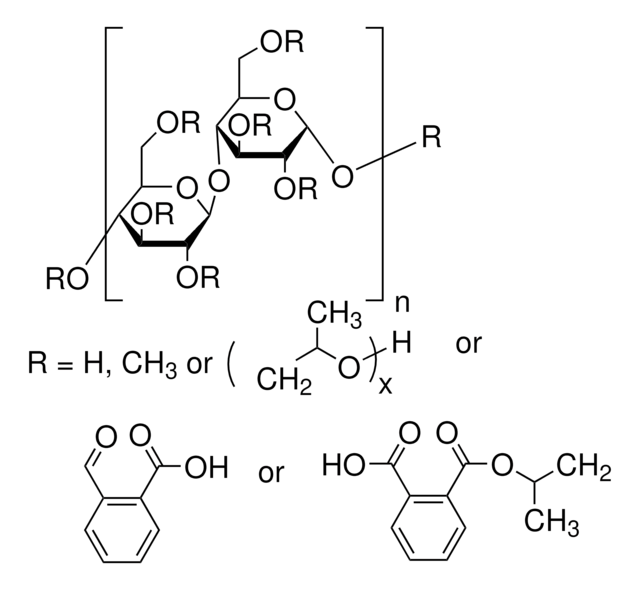423238
(Hydroxypropyl)methyl cellulose
average Mn ~10,000
Sinónimos:
HPMC, Hypromellose
About This Item
Productos recomendados
formulario
powder
Nivel de calidad
mol peso
average Mn ~10,000
Extensión del etiquetado
1.8-2.0 mol methoxy per mol cellulose (D.S.)
29 wt. % methoxy
0.2-0.3 mol propylene oxide per mol cellulose (M.S.)
7 wt. % propylene oxide
tensión superficial
43-55 dyn/cm, 25 °C, 0.05 wt. %
viscosidad
6 cP(20 °C)(lit.)
temperatura de transición
gel point 58-64 °C
¿Está buscando productos similares? Visita Guía de comparación de productos
Aplicación
Características y beneficios
Código de clase de almacenamiento
11 - Combustible Solids
Clase de riesgo para el agua (WGK)
WGK 1
Punto de inflamabilidad (°F)
Not applicable
Punto de inflamabilidad (°C)
Not applicable
Equipo de protección personal
Eyeshields, Gloves, type N95 (US)
Elija entre una de las versiones más recientes:
¿Ya tiene este producto?
Encuentre la documentación para los productos que ha comprado recientemente en la Biblioteca de documentos.
Los clientes también vieron
Nuestro equipo de científicos tiene experiencia en todas las áreas de investigación: Ciencias de la vida, Ciencia de los materiales, Síntesis química, Cromatografía, Analítica y muchas otras.
Póngase en contacto con el Servicio técnico
